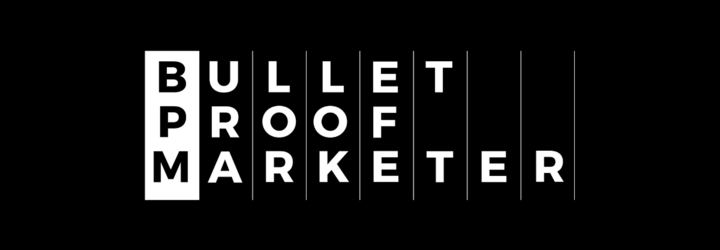So you want to start a podcast, I see. Here’s the good news: starting a podcast has never been easier or more accessible than it is today, and thanks to the internet, it’s also easier than ever to connect with an audience that’s interested in your niche. The bad news? It may be easy for you to start a podcast, but that’s true for everyone else too. That doesn’t mean it’s time to give up! In fact, once you’re done with this blog, you’ll already have a leg up on the competition. Let’s start with the essentials:
Why Should You Start a Podcast?
Podcasts are an easily accessible form of media, available on YouTube, major music platforms like Spotify, as well as dedicated podcast platforms like Apple Podcasts. That amounts to just about everybody. Currently, 144 million Americans listen to a podcast each month — that’s over 40% of the population!
As with any form of marketing, you need to go where your audience is. If your audience is listening to podcasts, then that would be a good method of communicating your message to them. The majority of podcast listeners are in the 18-34 age range, but the number of older podcast listeners is rapidly growing with time.
The biggest advantage of podcasting is that it can help a marketer hit a particular audience or niche. The subject of your podcast can be tailored directly to your audience to pull them in, entertain and educate them. For example, if your business sells beauty products, your podcast could be all about sharing beauty tips and discussing the different products on offer.
Unlike other marketing strategies, podcasting creates a captive audience and a lot of loyalty. If you create a show that is consistently informative and interesting, then people will continue to listen to it, which keeps those people within your sales funnel.
Because of the ease of starting with podcasting, it’s hard to think of a reason not to do it.
What Equipment Do You Need?
Recording your first podcast can be as easy a process as you want it to be. You could pull out your phone right now, record yourself talking for 20 minutes, upload it to the internet, and pat yourself on the back.
However, like anything, if you want to produce a podcast that people come back to listen to, you’ll want to make sure it’s well planned with equipment that will up the quality of the final product. You don’t need a fancy recording studio — just a USB microphone and headphones will go a long way to improving your podcast.
The best setup for a tight budget (under $100) would be to buy:
- Two USB dynamic microphones
- Two sets of headphones
For a mid-budget ($200-$300):
- Two XLR dynamic microphones
- A portable sound recorder to connect the microphones to. (Eg. Zoom H4n)
- Headphones
When it comes to a higher budget, the sky is the limit. But all you truly need are microphones, something to record your sound into, and a computer for editing your audio!
Plan Out Your Podcast
Once you have the equipment, it’s time to plan your podcast and what it’s about. The subject of your podcast should be immediately relevant to the target audience of your business. For example, if you create a product for new mothers, your podcast should be relevant to them. You could even call it “The New Mother’s Podcast” if you wanted to hit the audience completely.
If you’re not sure of the audience of your product, then you’re not ready for podcasting yet and need to figure that out first. The better you know your audience though, the easier you’ll be to create a podcast, that will capture their interest.
Since that interest will be so strongly tied to what you’re selling, you should be knowledgeable in that area already. You’d expect that somebody with a product for new mothers would have a lot of knowledge about pregnancy and being a new mother. That should already give you a built-in catalog of topics to discuss on the podcast.
With those topics in mind, you can brainstorm ideas for shows. The best podcasts often answer frequently asked questions or give valuable information to their audience. Following “The New Mothers Podcast” example, you could have a whole show dedicated to making your own baby food and how to do it.
When coming up with ideas for the show, it’s also good to keep your goal in mind. What do you want each episode of your podcast to achieve, and what should it achieve as a whole? If you want to push awareness of your business, how will you do that in your podcast?
It’s best to plan each episode out beforehand into sections, along with talking points, to ensure that all relevant information is conveyed to your audience.
Set Yourself Up For Success
I’ve already spoken about the importance of planning your podcast, but what else can you do to make your podcast a success?
The main thing is to make your podcast relatable on a human level. Although your podcast is done by your business, that doesn’t mean it has to be completely professional and wooden. While subject matter is important, people also come back to listen to podcasts because they enjoy the host.
So having a sense of humor and not taking yourself too seriously is essential. Listeners want to feel like they’re sitting down with a friend to talk to. If possible, try to use somebody in your organization with with whom your audience can identify with. That way, it’s much easier to build up a rapport. If you were to do a podcast for new mothers, a 14-year-old boy might not be the best host. It’s all about being relatable.
While finding a host with personality is important, consistency is also key for a podcast. The sound quality needs to always be good, the information given should be valuable, and it should also entertain! If you don’t entertain in some way, the listeners won’t give you a second chance. There are dozens of other podcasts they could listen to instead.
One big issue I find with many podcasts is that they’re often overly self-promotional. For your podcast to be a success, you need to find a way to talk about your business without shoving it down your listener’s throats. If your podcast is mostly promotional, then nobody will listen to it. Instead, promotion should be short and efficient.
Get the Word Out
While overly promoting your business during your podcast is a big no-no, it is crucial that you promote the podcast itself. Once it’s been uploaded, you need to spread the word to gain listeners.
The first step in doing this should be to submit your podcast to the main podcasting services: Apple Podcasts, Spotify, and Google Podcasts. Submitting your podcast makes it show up on the services and makes it easier for listeners to download it and find it.
Once this is done, you can set out to promote your podcast. If you have social media, you should post multiple updates for each new episode of your podcast, letting your followers know what the new episode is about and where they can listen to it. You should also post a link to each new episode on your blog if you have one.
Another good way to build some exposure for your podcast is to include a guest that is already popular in your industry. By featuring them, you should pull in their fans as well as get their help to market your podcast.
With these tips under your belt, you’re already well on your way to starting a successful podcast. What are you waiting for?











